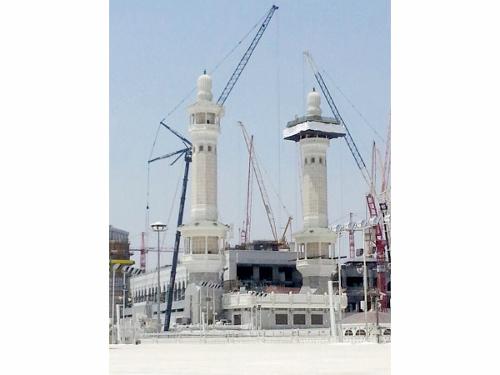
Electricity to the minarets has been disconnected. Engineers and technicians from the company, which is implementing the expansion of the Grand Mosque and the mataf, have started removing loudspeakers, lamps and electrical appliances from the minarets.
Work is progressing under the supervision of officials and experts from a specialized committee under the contracting company, and that is in coordination with the Presidency for the Affairs of the Two Holy Mosques.
The minarets will be reconstructed after completion of the mataf expansion, according to well-informed sources.
Sheikh Abdul Rahman Al-Sudais, head of the Presidency, said that the demolition work of the minarets will be carried out without causing any disturbance to pilgrims and visitors to the Grand Mosque.
“As part of the tradition of the Presidency in preserving the remains of the Grand Mosque, the pillars of the old mosque and minarets and carvings on them will be packed and kept safely,” he said.
The Grand Mosque and the Prophet’s Mosque in Madinah are currently witnessing the largest-ever expansions in their history, and that will increase their capacity to more than two million worshipers each.
Tipped as the ‘Project of the Century,’ the King Abdullah Expansion of the Grand Mosque is estimated to cost more than SR100 billion. The total area of the existing mosque is 356,000 square meters with a capacity to accommodate 770,000 worshipers while the new expansion will accommodate an additional 1.2 million. The project includes expansion of mataf in order to increase its capacity from 48,000 to 130,000 per hour.





Comments
Add new comment